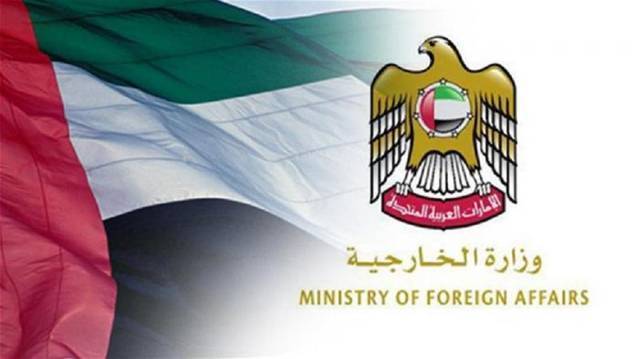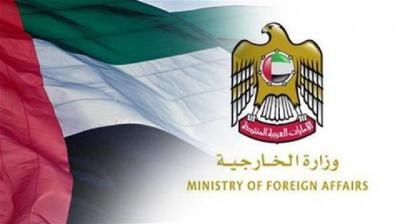The UAE has issued a statement concerning the opening of its embassy in Israel, affirming that it is currently coordinating with Tel Aviv regarding the inauguration of the UAE Embassy in Israel.
The Emirates News Agency (WAM) reported that the Ministry of Foreign Affairs and International Cooperation confirmed it is currently coordinating with its Israeli counterpart regarding the embassy's opening. The statement clarified that the process of opening the embassy has been affected by the current restrictions on movement in Israel to curb the spread of the COVID-19 pandemic.
The statement from the UAE Ministry of Foreign Affairs and International Cooperation expressed optimism for an improvement in the situation and for the completion of the embassy's opening soon, noting the ongoing efforts from both the UAE and Israeli sides to lead one of the fastest vaccination campaigns in the world.
Yesterday, the UAE government approved the establishment of an embassy in Tel Aviv, following an agreement between the two countries to establish full diplomatic relations under American auspices last year. The UAE government’s Twitter account stated that the Cabinet had approved the establishment of an embassy for the UAE in Tel Aviv, Israel.
The Israeli Foreign Ministry announced that Israel opened an embassy in Abu Dhabi today (January 24, 2021), following the approval of the Emirati Cabinet to establish an embassy in Tel Aviv.
The Israeli Foreign Ministry stated that it officially opened the Israeli embassy in Abu Dhabi with the arrival of Charge d'Affaires Eitan Na'eh in the Emirati capital, indicating that this embassy would work to enhance relations between the two countries.
Israeli authorities explained that the embassy "will operate in temporary offices to be inaugurated in the coming days until a permanent headquarters is found." Israeli Foreign Minister Gabi Ashkenazi stated in the announcement that "the opening of the embassy will enable the expansion of bilateral relations between Israel and the UAE to achieve the potential of these relations quickly and comprehensively."
The UAE and Bahrain signed agreements with Israel on September 15 of last year to normalize relations, under the auspices and presence of former U.S. President Donald Trump, with the signing ceremony held at the White House, facilitated by active U.S. mediation. It is worth noting that the UAE is the first Gulf state and the third Arab country to sign a normalization agreement with Israel, while Bahrain is the fourth, followed by Sudan and Morocco, after Jordan (1994) and Egypt (1979).
The economies of the UAE and Israel, both affected by the COVID-19 pandemic, look forward to reaping the benefits of normalization and achieving quick profits, having signed agreements in areas such as visa exemptions, tourism, finance, and more.
Palestinians have condemned the normalization agreements, viewing them as contradictory to the Arab consensus that made resolving the Israeli-Palestinian conflict a fundamental condition for peace with the Jewish state.




